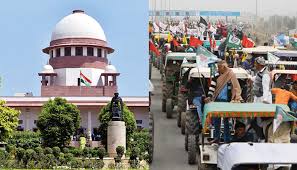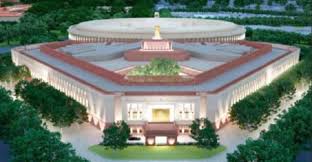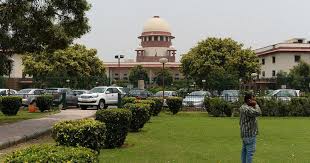Feature
SC to hear Uber rape victim’s plea against recall of witnesses

New Delhi: The Supreme Court will hear on Tuesday a plea by the Uber rape victim challenging the Delhi High Court order permitting the recall and re-examination of some prosecution witnesses — including the victim herself — by the accused driver after he changed his lawyer.
The bench of Chief Justice H.L. Dattu, Justice Sudhansu Jyoti Mukhopadhaya and Justice Arun Mishra said the matter would be heard on Tuesday after counsel Colin Gonsalves mentioned it on Monday.
The victim challenged the high court order of March 4 that partially allowed the accused driver Shiv Kumar Yadav to recall some of the prosecution witnesses, including the victim, for further cross-examination.
Challenging the high court order, the victim contended that the conclusion of the high court that it was Yadav who alone stood to suffer on account of delay was totally wrong as it was the victim who suffers the most for having to go through a trial virtually from the beginning all over again.
The victim wondered how could, after not accepting Yadav’s pleas on various counts, the trial court and the high court “abruptly jumped to the conclusion that recall and re-examination of witnesses was necessary”.
The petitioner contended that the high court order was “unconstitutional and in breach of the principles regarding recall and re-examination” of the witnesses.
Allowing Yadav’s plea partially, the high court had imposed some conditions that included that the cross-examination of witnesses would be conducted on a day-to-day basis.
Yadav’s counsel would not repeat any question which has already been put to them in their cross-examination, and no adjournment would be sought on any ground in the case.
“Needless to say, it is impressed upon the learned counsel for the petitioner (Yadav) not to repeat any question which has already been put to the witnesses in their cross-examination by the earlier counsel,” the high court said.
The high court further clarified that “in case for any reason any witness is not available for the purpose of further cross-examination, his/her testimony shall be read in evidence as it is”.
Entertainment
Meghalaya Reserves Legalized Gambling and Sports Betting for Tourists

The State Scores Extra High on Gaming-Friendly Industry Index
Meghalaya scored 92.85 out of 100 possible points in a Gaming Industry Index and proved to be India’s most gaming-friendly state following its recent profound legislation changes over the field allowing land-based and online gaming, including games of chance, under a licensing regime.
The index by the UK India Business Council (UKIBC) uses a scale of 0 to 100 to measure the level of legalisation on gambling and betting achieved by a state based on the scores over a set of seven different games – lottery, horse racing, betting on sports, poker, rummy, casino and fantasy sports
Starting from February last year, Meghalaya became the third state in India’s northeast to legalise gambling and betting after Sikkim and Nagaland. After consultations with the UKIBC, the state proceeded with the adoption of the Meghalaya Regulation of Gaming Act, 2021 and the nullification of the Meghalaya Prevention of Gambling Act, 1970. Subsequently in December, the Meghalaya Regulation of Gaming Rules, 2021 were notified and came into force.
All for the Tourists
The move to legalise and license various forms of offline and online betting and gambling in Meghalaya is aimed at boosting tourism and creating jobs, and altogether raising taxation revenues for the northeastern state. At the same time, the opportunities to bet and gamble legally will be reserved only for tourists and visitors.
“We came out with a Gaming Act and subsequently framed the Regulation of Gaming Rules, 2021. The government will accordingly issue licenses to operate games of skill and chance, both online and offline,” said James P. K. Sangma, Meghalaya State Law and Taxation Minister speaking in the capital city of Shillong. “But the legalized gambling and gaming will only be for tourists and not residents of Meghalaya,” he continued.
To be allowed to play, tourists and people visiting the state for work or business purposes will have to prove their non-resident status by presenting appropriate documents, in a process similar to a bank KYC (Know Your Customer) procedure.
Meghalaya Reaches Out to a Vast Market
With 140 millions of people in India estimated to bet regularly on sports, and a total of 370 million desi bettors around prominent sporting events, as per data from one of the latest reports by Esse N Videri, Meghalaya is set to reach out and take a piece of a vast market.
Estimates on the financial value of India’s sports betting market, combined across all types of offline channels and online sports and cricket predictions and betting platforms, speak about amounts between $130 and $150 billion (roughly between ₹9.7 and ₹11.5 lakh crore).
Andhra Pradesh, Telangana and Delhi are shown to deliver the highest number of bettors and Meghalaya can count on substantial tourists flow from their betting circles. The sports betting communities of Karnataka, Maharashtra, Uttar Pradesh and Haryana are also not to be underestimated.
Among the sports, cricket is most popular, registering 68 percent of the total bet count analyzed by Esse N Videri. Football takes second position with 11 percent of the bets, followed by betting on FIFA at 7 percent and on eCricket at 5 percent. The last position in the Top 5 of popular sports for betting in India is taken by tennis with 3 percent of the bet count.
Local Citizens will Still have Their Teer Betting
Meghalaya residents will still be permitted to participate in teer betting over arrow-shooting results. Teer is a traditional method of gambling, somewhat similar to a lottery draw, and held under the rules of the Meghalaya Regulation of the Game of Arrow Shooting and the Sale of Teer Tickets Act, 2018.
Teer includes bettors wagering on the number of arrows that reach the target which is placed about 50 meters away from a team of 20 archers positioned in a semicircle.
The archers shoot volleys of arrows at the target for ten minutes, and players place their bets choosing a number between 0 and 99 trying to guess the last two digits of the number of arrows that successfully pierce the target.
If, for example, the number of hits is 256, anyone who has bet on 56 wins an amount eight times bigger than their wager.





















